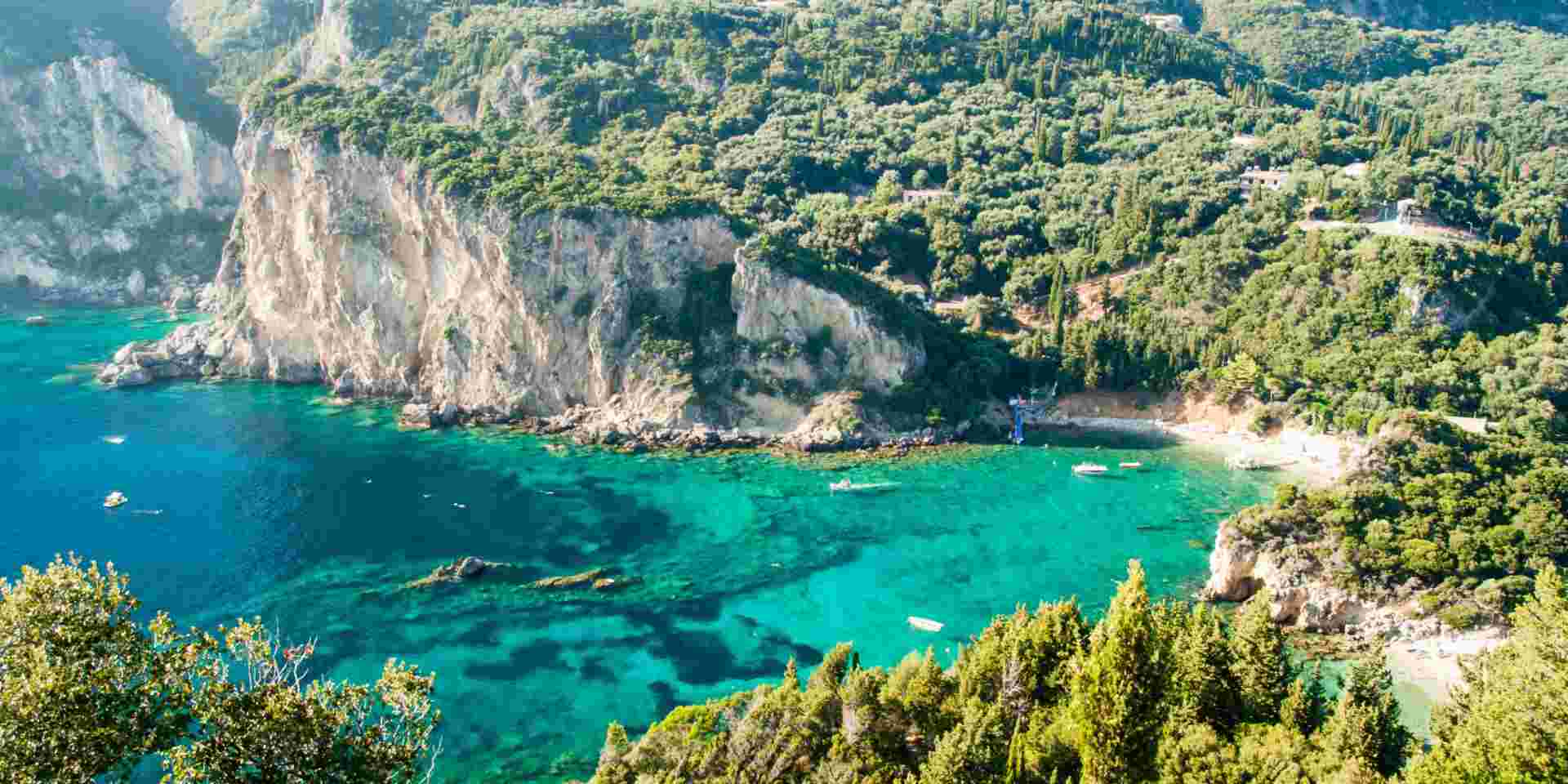Planning your first visit to Greece? You’re in for a treat.
Greece offers a rich history, stunning landscapes, and delicious cuisine. Greece is a dream destination for many travelers. Ancient ruins, crystal-clear waters, and vibrant culture await you. Whether you’re exploring Athens, relaxing on a beach, or tasting local dishes, Greece has something for everyone.
The country is known for its warm hospitality and friendly locals. With so much to see and do, planning your trip can feel overwhelming. But don’t worry, this guide will help you navigate your first visit. From must-see attractions to hidden gems, you’ll discover the best of Greece. Get ready for an unforgettable adventure in one of the world’s most beautiful countries.

Planning Your Trip
Planning your first trip to Greece? You’re in for an unforgettable adventure. This beautiful country offers stunning landscapes, rich history, and delicious cuisine. But before you go, it’s essential to plan your trip carefully. Here’s everything you need to know to make your visit smooth and enjoyable.
Best Time To Visit
The best time to visit Greece depends on what you want to do. If you enjoy warm weather and outdoor activities, visit between May and October. During these months, you can enjoy the beaches and clear skies. The temperatures are also perfect for exploring historical sites.
If you prefer fewer crowds and cooler weather, consider visiting in the spring or fall. These seasons offer mild temperatures and beautiful scenery. Spring is perfect for seeing wildflowers and greenery. Fall is great for enjoying the harvest season and local festivals.
How To Get There
Getting to Greece is easier than you might think. Many international flights land at Athens International Airport. From there, you can take domestic flights to other parts of Greece. You can also use ferries to travel between the islands.
If you’re traveling from Europe, you might find direct flights to other Greek cities. Popular destinations include Thessaloniki, Crete, and Rhodes. You can also drive or take a train if you’re coming from nearby countries. Greece’s well-connected transportation network makes it easy to explore.
Remember to check visa requirements before booking your tickets. Most travelers from Europe, the USA, and Canada do not need a visa for short stays. Always double-check to avoid any surprises at the border.

Visa And Travel Requirements
Planning your first trip to Greece? Understanding the visa and travel requirements is essential. This guide will help you navigate through the necessary steps. Let’s make your travel experience smooth and hassle-free.
Visa Information
Most visitors need a Schengen visa to enter Greece. The Schengen visa allows you to travel to Greece and other European countries within the Schengen Area. Here’s what you need to know:
- Check if your country requires a visa. Visit the official Schengen website.
- Apply for your visa at the Greek embassy or consulate in your country.
- Ensure your passport is valid for at least six months from your entry date.
- Provide a recent photo, proof of accommodation, and travel itinerary.
- Demonstrate sufficient funds to cover your stay.
Processing times can vary. Apply at least one month before your departure.
Travel Insurance
Travel insurance is crucial for your trip. It covers medical emergencies, trip cancellations, and lost belongings. Here’s what you need:
- Choose a comprehensive travel insurance plan.
- Ensure it covers all your planned activities.
- Check for coverage of medical expenses, including COVID-19.
- Review the policy’s cancellation and refund terms.
Here’s a quick comparison of popular travel insurance options:
| Provider | Coverage | Price Range |
|---|---|---|
| Provider A | Medical, Trip Cancellation, Lost Luggage | $50 – $150 |
| Provider B | Medical, Adventure Sports, COVID-19 | $70 – $200 |
| Provider C | Medical, Trip Interruption, Evacuation | $60 – $180 |
Verify the policy details before purchasing. A well-chosen travel insurance plan gives peace of mind during your Greece trip.
Packing Essentials
Planning your first trip to Greece can be exciting. Packing the right items is essential to ensure a smooth and enjoyable experience. Let’s dive into the packing essentials you need for your Greek adventure.
Clothing And Footwear
Lightweight clothing is a must for the warm Greek weather. Pack breathable fabrics like cotton and linen. Don’t forget a swimsuit for the beautiful beaches. A light jacket or sweater is useful for cooler evenings. Comfortable walking shoes are essential. You’ll explore ancient ruins and charming streets.
Travel Gadgets
Bring a good quality camera. Capture the stunning scenery and historic sites. A portable charger is handy. Your devices stay powered throughout the day. An international power adapter is necessary. Greece uses different plug types. A travel-sized first aid kit is also a smart addition. Be prepared for any minor injuries or ailments.

Understanding Greek Culture
Visiting Greece for the first time is an exciting adventure. To make the most of your trip, it’s helpful to understand Greek culture. This will enhance your experience and help you connect with the locals. In this section, we will explore basic etiquette and common phrases that will come in handy during your visit.
Basic Etiquette
Respect is highly valued in Greek culture. Here are some key points to keep in mind:
- Always greet people with a smile. A simple “Yassas” (Hello) works well.
- Use polite forms of address, like “Kyrie” (Mr.) and “Kyria” (Mrs.).
- In restaurants, tipping is appreciated but not mandatory. 5-10% is common.
- Dress modestly when visiting religious sites. Cover your shoulders and knees.
- Be punctual. Greeks value timeliness, especially for appointments and meetings.
Common Phrases
Learning a few Greek phrases can make a big difference. Here are some useful ones:
- “Kalimera” – Good morning
- “Kalispera” – Good evening
- “Efharisto” – Thank you
- “Parakalo” – Please/You’re welcome
- “Signomi” – Excuse me/Sorry
- “Pou ine i toualeta?” – Where is the bathroom?
Using these phrases shows respect and effort. Locals will appreciate it, and it can lead to more pleasant interactions.
Must-visit Destinations
Greece is a land of rich history, stunning landscapes, and vibrant culture. If it’s your first time visiting, there are some must-visit destinations you should not miss. From ancient ruins in Athens to the charming islands scattered across the Aegean Sea, Greece offers experiences that will leave you in awe. Let’s dive into some of the top spots you need to add to your itinerary.
Athens Highlights
Athens, the capital city, is a treasure trove of historical sites. Start with the Acropolis, home to the Parthenon. This iconic landmark stands proudly on a hill overlooking the city. The Acropolis Museum, located nearby, houses artifacts from the site. It offers insight into ancient Greek life.
Next, explore the ancient Agora. This was the heart of public life in ancient Athens. Wander through the ruins and imagine the bustling market life of the past. Don’t miss the Temple of Hephaestus, one of the best-preserved ancient temples. For a taste of modern Athens, visit Plaka. This lively neighborhood is full of shops, cafes, and narrow streets. It’s the perfect place to relax after a day of sightseeing.
Island Hopping
Island hopping is a must-do activity in Greece. Each island has its own unique charm. Start with Santorini, famous for its stunning sunsets and white-washed buildings. The island’s volcanic beaches and ancient ruins are also worth exploring.
Mykonos is another popular destination. Known for its vibrant nightlife and beautiful beaches, it attracts visitors from around the world. The windmills and Little Venice area are iconic sights. For a quieter experience, visit Naxos. This island offers beautiful beaches and traditional villages. It’s perfect for those seeking a more relaxed atmosphere.
Crete, the largest Greek island, has a bit of everything. From historical sites like Knossos to beautiful beaches and rugged mountains, it offers diverse experiences. Each island you visit will leave you with unforgettable memories.
Local Cuisine
Experiencing local cuisine is a must when visiting Greece for the first time. Greek food is rich in flavors and history. It’s a mix of fresh ingredients and traditional recipes. You will find a variety of dishes that are both delicious and unique.
Traditional Dishes
One of the most famous Greek dishes is Moussaka. It is a layered dish with eggplant, minced meat, and béchamel sauce. Another popular dish is Souvlaki, which consists of skewered and grilled meat. Tzatziki is a must-try sauce made from yogurt, cucumber, and garlic.
Greek salads are also a staple. They usually contain tomatoes, cucumbers, olives, and feta cheese. Spanakopita, a spinach and feta pie, is another delicious option. Seafood lovers should try grilled octopus or fresh fish from the Aegean Sea.
Dining Etiquette
Dining in Greece is a social experience. Meals are often shared with family and friends. It is common to start with appetizers, known as meze, before the main course. Bread is usually served with every meal, and it is polite to break it with your hands.
In Greece, people often eat late. Dinner typically starts around 9 PM. It is customary to say “Kali Orexi,” which means “good appetite,” before you start eating. Tipping is appreciated but not mandatory. Leaving a small amount, around 5-10%, is considered generous.
Understanding these customs will enhance your dining experience. Enjoy every bite and the warm hospitality of Greek culture.
Transportation Tips
Traveling to Greece for the first time can be an exciting adventure. Understanding the transportation options available can make your trip smoother. Here are some useful tips on how to get around Greece.
Public Transport
Greece has an efficient public transportation system. Buses and trains are popular options. In Athens, the metro system is modern and easy to navigate.
- Buses: Buses connect many cities and towns. They are affordable and punctual.
- Metro: The Athens metro system is clean and safe. It covers major tourist spots.
- Trams: Trams operate in Athens. They are good for short distances.
- Ferries: Ferries connect the Greek islands. They are a scenic way to travel.
Buy tickets in advance to avoid long lines. Ticket machines are available at most stations. Validate your ticket before boarding to avoid fines.
Renting A Car
Renting a car gives you freedom to explore. It is ideal for visiting remote areas. Here are some tips:
- Driving License: Ensure you have a valid driving license. An International Driving Permit (IDP) is recommended.
- Insurance: Purchase comprehensive insurance. It covers accidents and damages.
- Navigation: Use a GPS or a map. Roads can be tricky in rural areas.
- Parking: Look for designated parking areas. Avoid parking in restricted zones.
Renting a car is simple. Major rental companies operate in Greece. Book online in advance for the best rates.
Safety And Health
Visiting Greece for the first time can be an exciting adventure. It’s important to stay safe and healthy during your trip. Understanding the local safety measures and health precautions will ensure a smooth and enjoyable experience. This guide will help you navigate safety and health in Greece.
Emergency Contacts
Knowing the local emergency contacts can be a lifesaver. Here are the key numbers you should keep handy:
| Service | Contact Number |
|---|---|
| Police | 100 |
| Ambulance | 166 |
| Fire Brigade | 199 |
| Tourist Police | 171 |
The Tourist Police can assist you in multiple languages. They are particularly helpful if you need directions or face any issues as a tourist.
Health Precautions
Maintaining good health while traveling is crucial. Here are some health precautions to keep in mind:
- Drink bottled water: Tap water is generally safe in cities, but bottled water is recommended in rural areas.
- Stay hydrated: Greece can get very hot, especially in summer. Drink plenty of water.
- Use sunscreen: Protect your skin from the strong Greek sun.
- Be aware of food allergies: Inform restaurant staff about any allergies. Greek cuisine uses many fresh ingredients.
For any medical emergencies, visit the nearest hospital or clinic. Pharmacies are widely available and well-stocked with common medications.
Frequently Asked Questions
What Is The Best Time To Visit Greece?
The best time to visit Greece is from late April to early November. During this period, the weather is pleasant, and most tourist attractions are open. July and August are peak tourist months, while May, June, and September offer a more relaxed experience.
Do I Need A Visa To Visit Greece?
If you are from the EU, US, Canada, or Australia, you do not need a visa for short stays. For other nationalities, check with the Greek consulate. Ensure your passport is valid for at least six months beyond your stay.
What Are The Must-visit Places In Greece?
Must-visit places in Greece include Athens, Santorini, Mykonos, Crete, and Rhodes. Athens offers rich history and culture, while Santorini and Mykonos are known for their stunning views. Crete and Rhodes provide beautiful beaches and historical sites.
What Is The Currency Used In Greece?
The currency used in Greece is the Euro (€). Credit cards are widely accepted, but it is advisable to carry some cash for small purchases. ATMs are readily available throughout the country.
Conclusion
Visiting Greece for the first time is truly unforgettable. The rich history, stunning landscapes, and delicious food create a unique experience. Every corner of Greece tells a story. The friendly locals add to the charm. You will leave with many beautiful memories.
Plan your trip well to make the most of it. Greece awaits with open arms. Pack your bags and enjoy your adventure.


